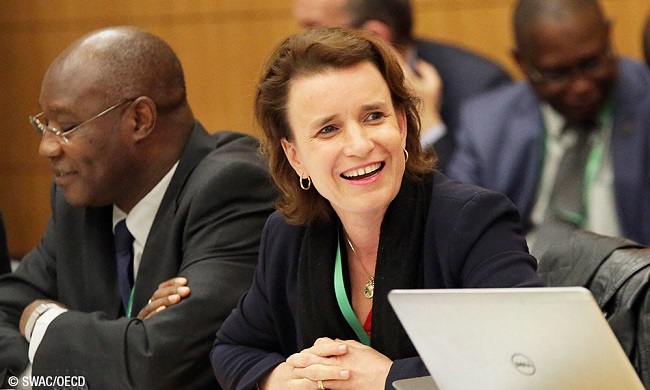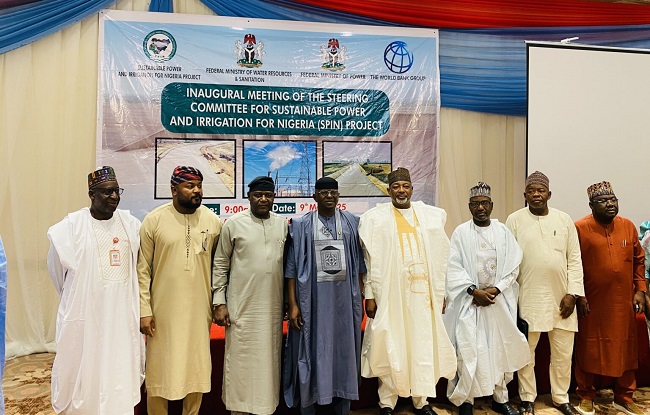African governments, especially those of Nigeria, Kenya, and Uganda, have been told to immediately reverse all existing privatisations in the water, electricity, and waste sectors and suspend any ongoing or planned discussions on the privatisation of public assets.

They were also urged to reject all IFI-driven initiatives that promote the commodification of essential public services, including through PPPs, corporatisation, concessions, and other profit-driven models that undermine universal access and human rights.
These calls formed part of the resolutions adopted at the close a regional meeting convened in Abuja from May 7 to 8, 2025, by the Public Services International (PSI), in collaboration with DGB Bildungswerk Bund (DGB BW).
The meeting brought together trade unions and civil society organisations from Nigeria, Kenya, and Uganda under the PSI–DGB BW project titled “Promoting Transparency and Decent Work in Supply Chains in Electricity, Water and Waste Services in Sub-Saharan Africa – Phase II.”
The two-day gathering served as a critical platform for stakeholders to share national experiences, analyse the impact of privatisation on public services, and formulate collective strategies to promote decent work and reclaim public control over essential services.
While the countries were urged to adopt and scale up Public-Public Partnerships (PUPs) as a viable, democratic, and socially just alternative, they were at the same time asked reinvest in human capital within the public sector.
“PUPs have shown proven success in delivering quality public services without profit motives. Also, governments must allocate sufficient resources for the training, motivation, and retention of public sector workers to promote efficiency, innovation, and transparency,” participants submitted in a communique.
They also called for the ratification and full implementation key International Labour Organisation (ILO) Conventions, and strengthening of social dialogue, albeit by restoring and respecting tripartite governance frameworks that enable meaningful engagement between governments, employers, and workers’ organisations in shaping public service policy.
Participants recognised that the widespread adoption of Public-Private Partnerships (PPPs) and privatisation models in the electricity, water, and waste sectors continues to undermine access to quality, affordable, and accountable public services across the continent.
Despite mounting global evidence of the systemic failures of these models – especially in Africa – governments remain under pressure from International Financial Institutions (IFIs) such as the World Bank and IMF to privatise public assets and utilities.
The meeting underscored that these policy prescriptions, framed under the guise of “efficiency” and “reform,” fail to account for the lived realities of African communities and public sector workers.
Rather than delivering improved services, privatisation has deepened inequality, entrenched corruption, and weakened public institutions, participants noted.
Following deliberations, the meeting made the following observations:
- Privatisation has failed to serve Africa’s public interest. It has led to escalating user fees and shrinking service coverage, restricting access only to those who can afford to pay.
- Public revenues have been eroded. Essential resources that could otherwise be reinvested to enhance service delivery and uphold decent working conditions have been diverted to private profit.
- Privatisation has increased vulnerability to corruption and conflict of interest, with opaque contracts and limited accountability mechanisms.
- African governments – including Nigeria, Kenya, and Uganda – have accumulated long-term debt from IFI-financed privatisation ventures that have not yielded the promised improvements in service delivery or equity.
- Privatisation has taken diverse and increasingly covert forms, including corporatisation, concessions, subletting, and the rise of Independent Power Producers (IPPs), which are effectively privatisation through the backdoor.
- The supply chains of water, electricity, and waste services are characterised by precarious employment conditions – marked by job insecurity, low wages, wage arrears, and absence of social protection (e.g., pensions and unemployment insurance). This directly undermines service quality, worker dignity, and community well-being.
- Privatisers have introduced governance models that marginalise workers’ voices, eroding long-standing tripartite arrangements and weakening democratic oversight over public services.









